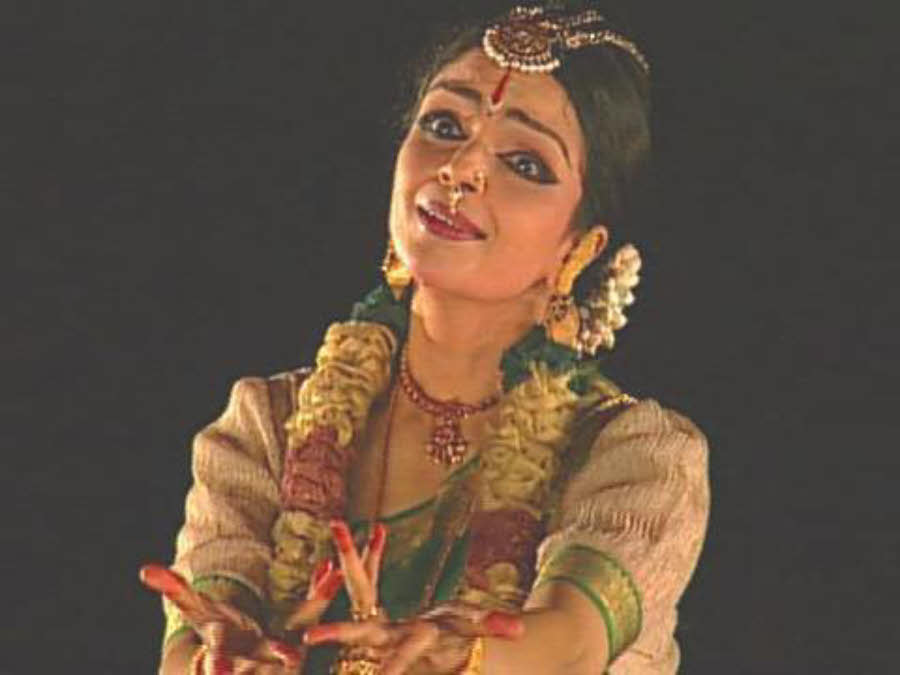Dr.Anita Ratnam is a classical and contemporary dancer and choreographer. She is also the founder director of Arangham Trust, a cultural foundation that seeks to explore, enrich and promote the performing and visual arts of India and to contemporize the rich tapestry of Indian creativity for modern audiences. A Ph.D. in Women’s Studies, Anita lectures in various universities and museums overseas and is a revivalist passionately engaged in the restoration of the 13th century temple ritual called Kaisika Natakam in her native ancestral village in Tamilnadu. A cultural entrepreneur, Anita is the founder and managing editor of www.narthaki.com, the largest dance portal on the Internet.
As a disciple, what are some of the qualities and lessons that you have learnt from your Gurus?
Initially, do not question. Listen, watch, absorb, process and then respond. Since dance is such a corporeal experience, it is impossible not to personalise the movement kinetics and aesthetics through a personal prism. The best of Gurus, like I had in Adyar K Lakshman and Rajee Narayan in dance and Madurai N Krishnan in music, allowed for that personal alchemy to occur.
As a teacher yourself, what do you expect from a disciple wanting to learn classical dance? What do you wish to imbibe in your students?
I am consciously not a teacher of classical dance like the various dance Gurus in my city, Chennai. My position in the cultural landscape of Chennai is more like a ‘Performance Mentor’. I train on how to develop ‘Performance Consciousness’, something that all who set foot on the stage need. I train dancers, actors and musicians on how to be ‘present’ at every moment.
I help to develop qualities of stillness and silence at a core level. Classical dance is a vocabulary or a training ground for one kind of physical discipline. Today, it is very important to also acknowledge cross training in various other ways, to strengthen one’s own core specialty.
Do you think that the performing arts can be tapped more seriously to tell the society something – raise awareness on social issues and so on?
I truly believe that the arts are powerful and articulate on their own terms. The arts are for everyone. In today’s world fueled by speed and greed, it is only in the arts that everyone wins. In every other field of activity, there are winners and losers. The arts humanize society and offer a prophetic vision of harmony and wholeness.
On a parallel note, arts activism is developing as a potent tool for arousing interest in social causes and throwing light on pressing problems like Child Sexual Abuse, Women’s Dowry Deaths, HIV, and Mental Health. The actual performance cannot change the ground realities but can make the audience think and perhaps effect a change in their own attitudes towards those affected.
However, I would also say that in India, there is too much emphasis that art must serve some kind of a wider cause. If someone says that he or she is a dancer, then it means that, to be taken seriously as a responsible member of society one must include social issues or pressing concerns relating to women and children in order to have something to say. Arts need not be hitched onto any environment or social cause to gain validity.
One does not ask an engineer or a doctor or a lawyer to only represent or treat or manufacture according to social concerns. If the individual artiste feels strongly about an issue, it is completely up to him/her to represent the concerns through the art.
I truly believe that the arts are more crucial than ever in today’s world. They are the only natural force that stands against this machine age. The artiste is a prophet of our times.
